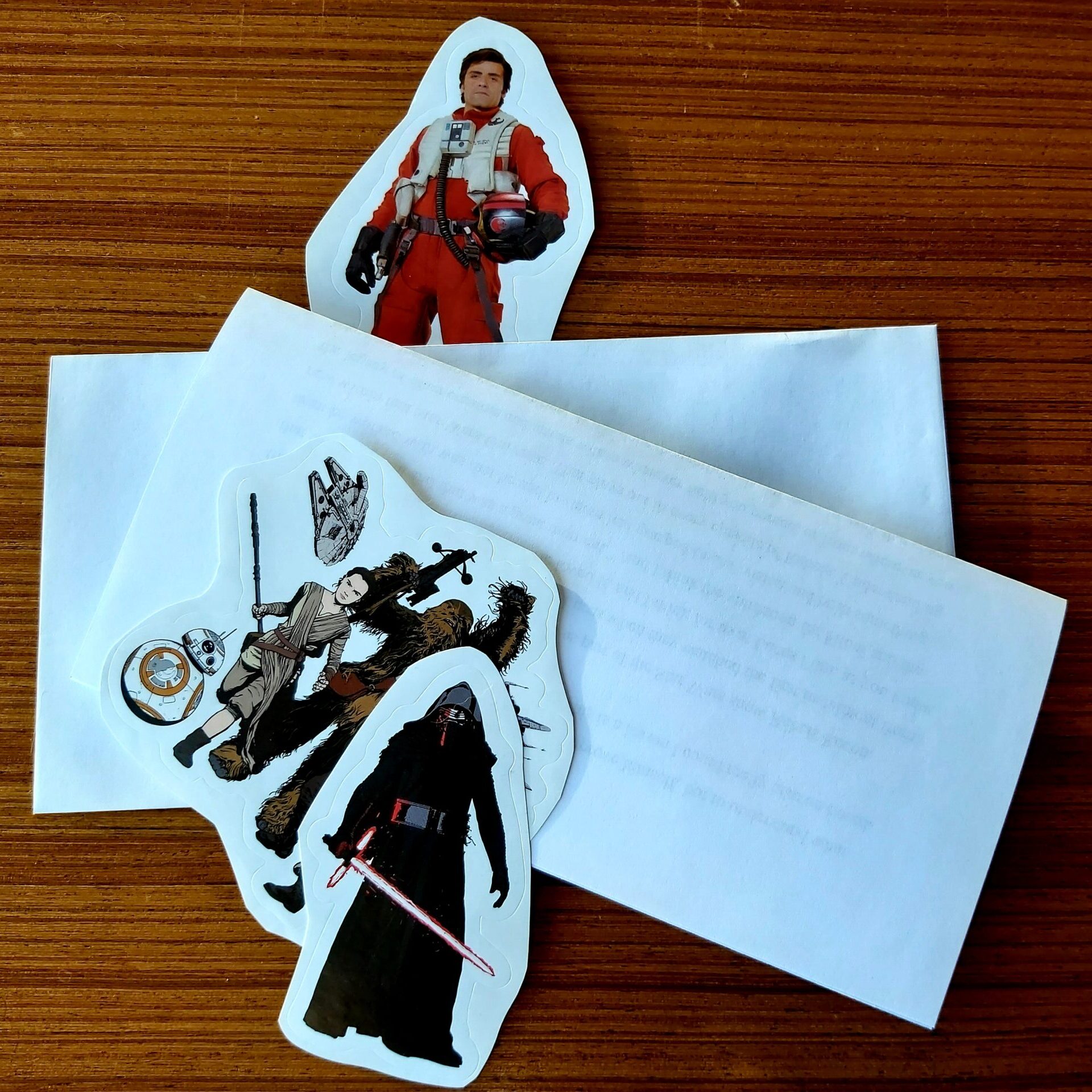
Star Wars with Dave Filoni
(Zen and the Art of Star Wars)
Dear Isobel and Theodore
“I have a Jedi costume I am making in my garage right now,” is one part of how Dave Filoni recounts the story of accepting the invitation to be interviewed by George Lucas to join Lucas Film animation and create the Clone Wars. What I find critical in this part of his wider story is that this is how I relate to Star Wars. This creative love of Star Wars is something that the Universe is designed for. It is at its best when a creator, or creative group, has the opportunity and freedom to build within it using their passion. Just like when we play with Star Wars toys and dress up as Star Wars characters. So, I like this story. It is of someone with excitement, who has stood in line waiting to see the films, has thought deeply about and discussed them, and ultimately came to create some of my favourite Star Wars stories that involve him, and the people he works with, playing as they create.
Over time the collaborative aspect of Star Wars has come to be my most loved part of the Universe. I find its stories are at their most interesting when a group of people who love Star Wars have made them. I gained that understanding by reading about all the iterations the first instalment, Episode IV, went through. That George Lucas changed the film due to the substantial input he received from others. That the film benefited greatly from the editing input of multiple editors, including his then partner Marcia Lucas. I have tried to take that understanding with me into everything I do. That creating things benefits from interaction with others. This understanding informs my love of cinema, of television, of creative practice. This collaboration can be direct, in a group of people making something together, but it can also be through influences. This is another area where I like to look toward Star Wars. Emblematic of that for me is how Dave Filoni has taken what he learned about Star Wars from his boss and mentor George Lucas during the years working on the Clone Wars and, I think, applied that to making something greater than he could have made alone, or that George Lucas could have made alone. A couple of key factors have shone through for me when I have watched Dave Filoni interviewed and speak about Star Wars and its fans. He listens, really takes things in, and that is not done with an eye to necessarily speaking in response but instead to try and learn from what he is hearing. Not to learn to necessarily improve himself, but to understand what the other person is saying, and this improves him. I think this allows Filoni to contribute both constructively and with empathy. This is a lesson I could really take on board.
The first words I heard from Dave Filoni were as part of the Star Wars show Rebels Recon. He tells us about his interaction with George Lucas when they watched the first instalment from the Disney owned Star Wars, Rebels, “He loved it, and I think for us at Lucas Film, as you know, that was a big deal and that was a great moment.” And I think the validation for Filoni and the team he worked with was that he and his team had grasped Lucas’ vision and built something new within that Star Wars Universe. That plays out in every episode of Rebels and now in The Mandalorian. Understanding the legacy of other creators and artists within whatever field you pursue, or from wherever you take your inspiration, can be critical. If it is done thoughtfully, it can result in work that changes a Universe.
Kind regards
Andrew Galan
Andrew Galan has been published in Solid Air, Best Australian Poems, Rabbit and the Tundish Review. He has featured at events such as the Newcastle Writers, Red Dirt, and Queensland Poetry festivals, and Chicago’s Uptown Poetry Slam. His book, For All The Veronicas (The Dog Who Staid), Bareknuckle Books, won an ACT Writing and Publishing Award. He is a member of the ACT Arts Minister’s Creative Council and won a Canberra Critics Circle Award for contributions to poetry. He ran poetry slam BAD!SLAM!NO!BISCUIT! for ten years and co-edited Australian Poetry Journal’s first volume of spoken word and performance poetry – Spoken.
